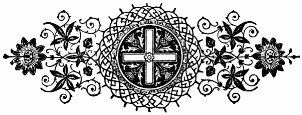
Saint Hunna
|
St. Hunna, or Huva, came of the reigning ducal family of Alsace and was married to a nobleman, Huno of Hunnaweyer, a village in the diocese of Strasbourg. Because she undertook to do the washing for her needy neighbors, she was nicknamed by her contemporaries "The Holy Washerwoman". Her family seems to have been influenced by St. Deodatus (Dié), Bishop of Nevers, for St. Hunna's son, who was his namesake, was baptized by him and subsequently entered the monastery which he founded at Ebersheim. St. Hunna died in 679 and was canonized in 1520 by Leo X at the instance of Duke Ulric of Würtemberg.
It is difficult to find satisfactory authority for what is recounted above. There is mention of Hunus and of "his holy wife" in the eleventh-century life of St. Deodatus of Nevers, and Henschenius in his note on the passage quotes a French work of John Ruyms upon the saints of the Vosges. See the Acta Sanctorum, June, vol. iv (3rd ed.), p. 731; and Analecta Bollandiana, vol. lxvi, pp. 343-345. There seems, however, to be a local cultus of St. Hunna, and the Abbé Hunckler in his Saints d'Alsace writes on the subject at some length.
Butler's Lives of The Saints, Herbert J. Thurston, S.J. and Donald Attwater
Nihil Obstat: PATRICIVS MORRIS, S.T.D., L.S.S., CENSOR DEPVTATVS.
Imprimatur: E. MORROGH BERNARD, VICARIVS GENERALIS
WESTMONASTERII: DIE XXIII FEBRVARII MCMLIII
|
|